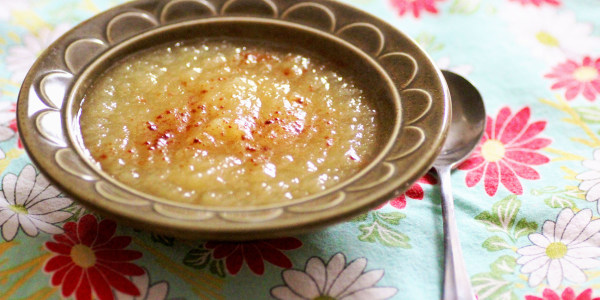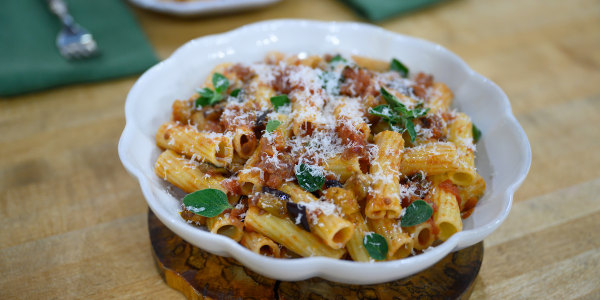How many times have you regretfully thrown away some yellowed kale, bruised apples or lemon rinds? It happens more often than most of us would like to admit. But a little knowledge about how to transform our fruits and veggies could save them from the trash. Chef and Food Network star Bobby Flay is an expert in delicious, and he shared his most productive produce tips with TMRW.
According to the United States Department of Agriculture, 30 to 40% of America's food supply is wasted each year — which amounts to over 133 billion pounds of food. Not only does this habit squander good eats and billions of dollars, it also contributes to excess garbage that releases methane, a greenhouse gas known to contribute to climate change.
Much of that waste comes from fruits and veggies that never even see a grocery store shelf because they're not aesthetically fit for uniform display. But Flay wants to give those lumpy potatoes and wonky squash a chance. As long as it's in season, it's fair game!
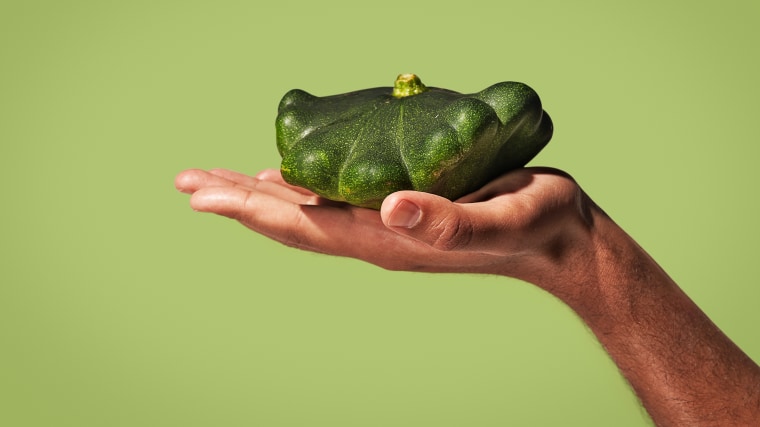
An advocate of eating deliciously, Flay is known for his hit restaurants, TV shows and mouthwatering creations. While his plates come out flawlessly, what many don't know is that he's a proponent of consuming all types of produce — not just the prettiest ones of the bunch.
"One of the things we're taught in culinary school is to use 100% of what we're using. Usually that involves utilizing it in more than one way," Flay told TMRW.
Flay, who recently partnered with Misfits Market (a produce subscription company that charges less for its "ugly" fruits and vegetables), says there are endless ways to do this, all of which save money and cut back on waste in the long run. Here's how to get more out of your produce.
Don't judge a fruit by its cover
The first way to keep extra cash in your pocket while helping the planet is to purchase "reject" fruits and veggies. According to Flay, something with a blemish or malformation will still taste equally as delicious. If you can't find it at a chain grocery store, check local markets, co-ops, farms (if accessible) or online produce subscriptions.
"If I made you the most delicious, creamy bowl of mashed potatoes, you'd have no idea what they looked like before. But mine are gonna cost (about) 40% less than your's, because you went out and bought the perfect-looking potato. It's all about the transformation," he said.
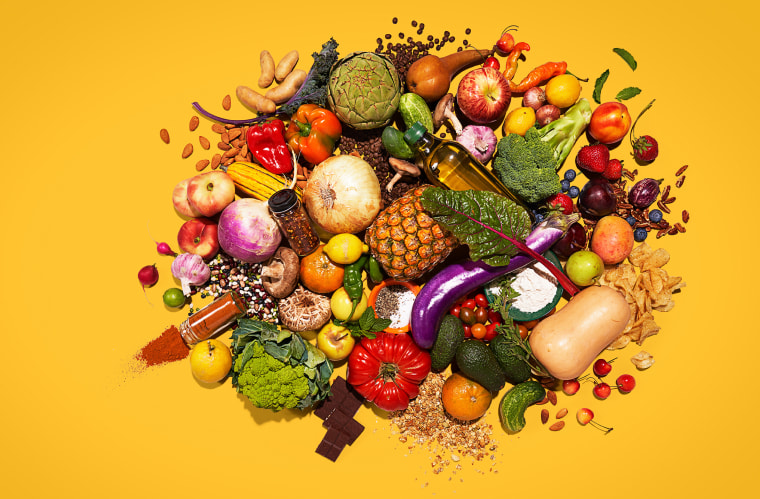
Put overripe items to good use
Sure, most of us know to mash up browned bananas into a moist loaf of banana bread or banana pancakes, but here are a few more of Flay's favorites:
- Turn mushy tomatoes into a fragrant homemade pasta sauce.
- Transform bruised apples into warm applesauce served with pork for dinner or as a snack with cinnamon.
- Roast zucchini and other squashes when they're on their way out and enjoy as a side dish.
Preserve by pickling
As a chef, Flay always looks at foods in terms of freshness so he can decide what to cook next — and he loves to pickle produce before it goes bad. Peppers like jalapeños and alliums like onions all work well when pickled in honey and vinegar, boiled and then stored in the fridge for six months.
His favorite thing to pickle? Citrus rinds.
"Preserved lemon rinds are one of the great condiments of North African and Moroccan food. We always throw away the rinds. You should be zesting the skins before juicing it in any food and reserve the zest," Flay said.
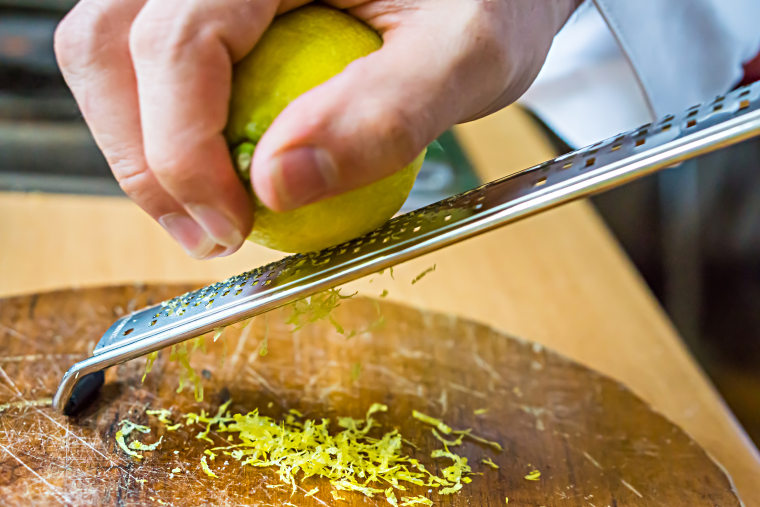
He peels and slices up the rinds and puts them in a jar with salt and sugar. Then he adds them to rice dishes, farro and other grains to brighten them with a savory, sweet, slightly tart taste. Flay added that squeezing citrus juice is only about 20% of the flavor in the fruit, so utilizing the the skin and the zest is the best way to maximize it. He also loves using orange skins in cocktails.
After grating, he puts lemon zest in a ramekin or tightly sealed jar and stores it for a few days. Then, whenever it's time to add zest to a recipe, he simply opens the jar, spreads the zest evenly on a paper towel for an hour to 30 minutes and sprinkles it like salt.
Use it all and repurpose leftovers
In autumn, Flay loves buying lots of squash, which typically last up to two months at room temperature before going bad. It's also one of those vegetables that can be put into so many dishes.
Flay starts by cutting open one large squash and roasting it as a side dish or main course stuffed with something like goat cheese or with other fruits, like pomegranate or apple and herbs. Usually there's some leftover in a house of two to four people, so the leftovers can all be tossed into a soup. Flay often makes a big vat of soup with any squash he has lying around or that may go bad soon and then freezes it in smaller containers to be reheated individually and not wasted.
"Repurposing leftovers — one thing I realized being home during quarantine and didn’t want to go shopping that much, it really forced you to be a lot more economical in terms of all your produce," Flay said.
Now we can all practice a little repurposing!

